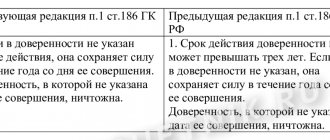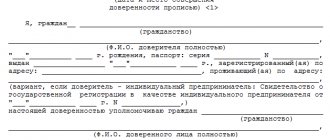In business, as well as in everyday life, there are situations when it becomes necessary to transfer control of your affairs to another person. Well, you never know what situations happen: you received an inheritance in another country (this happens too), an unexpected illness that struck at the wrong time - just when you need to resolve some issues. Or a sudden departure, coinciding with the time when your presence is required, or the most banal thing - lack of necessary knowledge to carry out certain activities (representation in court, real estate transactions, etc.) ...
Who is the principal
According to the accepted interpretation, the principal is one of the parties to the agency agreement . In such an agreement, they are called the Principal (the one who is entrusted with the conduct of affairs) and the Attorney (the one who is entrusted with the conduct of affairs).
What does such an agreement provide: a citizen, on the basis of a power of attorney registered by a notary, transfers his powers to an authorized person to perform legally significant actions on behalf of the principal and at his expense. The parties to the agreement may be individuals and legal entities endowed with civil legal capacity.
Powers can be transferred in full (the exclusive right of the attorney), or only partially. In addition, such an agreement provides for the possibility of determining the period of validity of this agreement, as well as the area within which this right will apply.
Regarding the time of implementation of the agency agreement:
- The agreement may establish a period of time during which the attorney can act on behalf of the principal;
- If the period of validity of the contract is not specified in the document, then the agreement is valid until other grounds for its termination arise.
Material on the topic The judicial system of the Russian Federation: classification of courts and requirements for judges
Legal responsibility for all actions performed lies entirely with the principal . The only exceptions are those activities that go beyond the boundaries of the agency agreement - in this case, responsibility for them will fall on the authorized person.
As for the remuneration of the trustee, this should usually be specified in the agency agreement (paid or gratuitous). If the trust agreement is paid, the procedure for paying remuneration to the attorney must also be indicated in the document.
For how long can a power of attorney be issued?
If the parties forgot or did not indicate the validity period in the power of attorney itself, then it is valid for 12 months. But be careful. If the power of attorney does not indicate the date of its execution, then it is considered void according to the Civil Code (clause 1 of Article 186 of the Civil Code of the Russian Federation).
The Civil Code provides for maximum possible deadlines for powers of attorney issued within the framework of subauthorization. For delegated powers, the period cannot exceed the validity period of the initial main power of attorney (clause 4 of Article 187 of the Civil Code of the Russian Federation).
As for all other powers of attorney, civil law does not limit the maximum period for which a power of attorney can be created. This means that the duration of the power of attorney can be any, regardless of the type of power of attorney: general, special or one-time. However, we recommend that you take into account the complexity of the assignment and the level of trust in the representative when specifying deadlines. Excessively long powers can be used by the attorney to the detriment of the company.
Unlock access to the private part of Clerk with a Premium subscription. Get hundreds of webinars and online courses, unlimited consultations and other proprietary content for accountants.
Hurry up to subscribe with a 20% discount until October 15, 2021. Read more about “Premium” here.
Agency agreement and power of attorney - is there a difference?
In conversations you can often hear “I gave power of attorney to conduct business,” but this is not an entirely accurate wording. What is the difference between a power of attorney and an agency agreement:
- The Agency Agreement coordinates the legal relationship between the Principal and the Attorney;
- A power of attorney is issued on the basis of an agency agreement. In fact, a power of attorney simply confirms the authority of the authorized person before third parties, i.e., a power of attorney cannot replace an agreement of authority, but simply confirms that this document has been accepted and signed.
The main condition of the agreement (or the power of attorney issued on its basis) is the very essence of the assignment - it is necessary that all legal actions that need (or can) be carried out by the attorney are strictly and correctly prescribed.
Powers of attorney can be divided into groups:
- One-time - those that give the Attorney the right to carry out only one legal action;
- Special - these are concluded for a certain time period, during which the Principal transfers his rights to carry out any activity to the Attorney;
- General (general) - allows the trustee to perform arbitrary actions that do not contradict the law.
Material on the topic Addition to the statement of claim to the court, structure and sample
How to issue a power of attorney to represent interests
In most cases, notarization of a power of attorney on behalf of a legal entity is not required. But the power of attorney will be considered valid only if the following data is available:
- date of registration (and the validity period may not be specified);
- details of the organization and information about the director;
- list of powers of the representative (as detailed as possible);
- attorney's passport information;
- handwritten signature of the principal's director.
However, for transactions with shares in an LLC and real estate, a notarized power of attorney will be required (Article 185.1 of the Civil Code of the Russian Federation).
Rights and obligations of the parties to the agreement
What you need to pay attention to when compiling:
- The ability for the authorized person to deviate from the content of the order if it is in the interests of the principal - this may be useful if the attorney was unable to contact the principal on time;
- The ability to transfer execution to a third party - usually this person is also specified in the trust agreement;
- Mandatory report from the attorney on the progress of the assignment;
- Upon termination of the contract, the Attorney undertakes to return the documents (power of attorney) to the Principal, even if their term has not yet expired;
- The principal is obliged to give the attorney a power of attorney to perform legal actions;
- Reimbursement of expenses incurred during the execution of the order falls entirely on the Principal, etc.
In addition to these clauses, it is strongly recommended that the agreement include a clause on the liability of the parties in case of failure to fulfill the terms of the contract or their performance in an inadequate volume/quality.
Who are the representatives in the document?
A document by which one party transfers its powers to the other is called a power of attorney ; the provision for its preparation and application is established in Article 185 of the Civil Code of the Russian Federation. The range of delegated powers is extremely wide. The characteristics of the persons acting as parties depend on the type of action that is delegated.
This is a bilateral official document, reminiscent of an agreement, in which one of its participants transfers the right of action within the established framework, and the second accepts the right transferred to it, exercising representation. The parties here are:
- principal;
- attorney.
- Principal - who is this? This is the party transferring the relevant authority. The role of the principal is an individual or official authorized to transfer the right of representation. His duties are regulated by the provisions of Article 975 of the Civil Code of the Russian Federation, which require him to:
- drawing up and certification of the relevant document;
- determining the range of delegated powers;
- providing the legal situation with the necessary resources;
- reimbursement of attorney's expenses;
- transfer of relevant documentation (if necessary).
- An attorney is one of the names of a person acting as a representative, whose role is performed by an attorney. The term “trusted representative” is used primarily in documents of an official nature related to receiving instructions from a legal entity. It is most often used in the context of drawing up a service agreement, including for individual entrepreneurs or officials.
- Attorney - this is the party who enters into the powers defined by the power of attorney. This role can be played by any person, at the discretion of the principal, if he is an adult and has legal capacity. His duties are regulated by Article 974 of the Civil Code of the Russian Federation, including the following:
- transfer of passport and personal data for drawing up a document;
- carrying out the required actions;
- compliance with the regulations established by the provisions of the power of attorney;
- representation of the interests of the principal.
IMPORTANT: According to the provisions of Article 972 of the Civil Code of the Russian Federation, the principal may be charged for the services of a representative; this fact is also included in the provisions of the document.
Conditions for termination of the trust agreement
- Refusal of one of the parties from the transaction;
- If the Principal or the Attorney is declared incompetent;
- In case of liquidation of a legal entity (if a company or organization acted as one of the parties to the agreement), or due to the death of the Principal or Attorney;
- Upon completion of the contract period.
If the agreement to transfer affairs is terminated before the expiration date of the contract, then the law provides for the following consequences:
- The Principal is obliged to pay all expenses of his Attorney that arose in connection with the latter’s execution of the order;
- Denunciation of an agency agreement (or a power of attorney received on the basis of a similar agreement) by the Principal will not be the basis for compensating the attorney for losses resulting from the cancellation of the agreement;
- Termination of the contract (power of attorney) by the Attorney will also not be the basis for repaying the Principal for losses arising due to this.
Requirements for the person transferring powers
Is the paper valid when changing a passport?
Despite the fact that this issue causes numerous disputes even among specialists, the answer is clear - the power of attorney begins from the moment of its execution until the moment:
- expiration of the validity period specified in the relevant provision;
- completion of work transferred to the representative.
In addition, the reasons for the termination of the legal capacity of transferred powers may include cases established by the norms of Article 188 of the Civil Code of the Russian Federation, including:
- cancellation of a document by one of the parties;
- death of a person acting as one of the parties;
- other cases established by law.
This list is exhaustive and does not include the precedent for replacing a passport.
REFERENCE: The passport data of the parties is essential information from among those indicated in the introductory part of the power of attorney.
The main reason why replacing a passport does not require replacing a power of attorney is that at the time of replacing the passport, information about the old passport is entered into the new identity document, indicating its details. Based on the transferred details from the old passport, the power of attorney retains its legal capacity.
Do I need a copy of my passport?
In the legislative regulations for the transfer of powers, in particular in Article 185, there are no direct or indirect instructions for the provision of additional documentation identifying the identity of the principal. Such documents cannot be requested for two reasons:
- a power of attorney is an autonomous and fully legal document;
- it contains the passport details of the principal;
- The entered passport data is certified in accordance with the identification standards.
Therefore, there is no reason to require or present a copy of the principal’s passport. The exception is cases when such a copy is provided in accordance with other regulatory regulations that do not relate to the legal capacity of the power of attorney. For example, when registering a sale and purchase and registering an agreement with Rosreestr.
Information required when drawing up a trust document
- Date and place where the document was drawn up (without this information the document has no legal force);
- Information about the Principal;
- Information about the authorized person;
- List of powers that will be vested in the Attorney;
- Duration of the agreement;
- Signatures of the parties.
Material on the topic How to find a criminal case by the names of the participants in the process?
If the validity period of the trust document is not specified, then by default it is assigned to one calendar year.
Types of powers of attorney
The main types of documents transferring powers:
- One-time . Provided for the purpose of a third party performing a specific action. For example, on the basis of a power of attorney, a representative can only sign the purchase and sale agreement. The document can no longer be used.
- Special . On the basis of such a power of attorney, the representative can perform similar operations during the agreed period of validity of the document.
- General . On the basis of such a power of attorney, the representative can perform all necessary actions related to the disposal of the principal’s property. That is, on the basis of this document, the representative receives an expanded list of rights.
A general power of attorney is a special type of document. It can only be issued to a person on whom the principal can completely rely. The risk that the representative may betray trust must always be taken into account. Based on a general power of attorney, a person receives exclusive powers. Therefore, the risk of abuse is high.
Types of documents by type of authority granted
On the basis of a power of attorney, general or exclusive powers can be granted. Let's consider the general powers within the framework of office work (Article 35 of the Code of Civil Procedure, Article 41 of the Arbitration Procedure Code, Article 45 of the CAS):
- Familiarization with the case materials.
- Making extracts and making copies.
- Providing evidence.
- Participation in the study of the evidence presented.
- Statement of petitions.
Exclusive powers within the framework of legal proceedings (Article 54 of the Code of Civil Procedure):
- Signing the claim and filing it in court.
- Referring the dispute to arbitration.
- Submitting a counterclaim.
- Changing the scope of claims in a claim.
- Drawing up a settlement agreement.
- Appealing decisions.
General powers are understood as powers that do not need to be separately enshrined in a power of attorney. If these are exclusive powers, the list of them must be indicated verbatim. If they are not specified, the representative will not be able to use them.
What is a proxy
A proxy is a person or organization that represents the interests of other citizens at their request.
A proxy is an individual who can represent the interests of a running deputy during an election campaign or other political process. A trustee can be an organization or citizen who acts as a disinterested administrator of the bankrupt's property. The main task of such a trustee is to distribute property in accordance with all legal norms. These powers are granted to an individual or organization by the arbitration court or creditors. A fiduciary can represent the interests of another person and act in accordance with those interests. But this type of representation must be legally certified by a notary, otherwise this proxy will not have official status.







